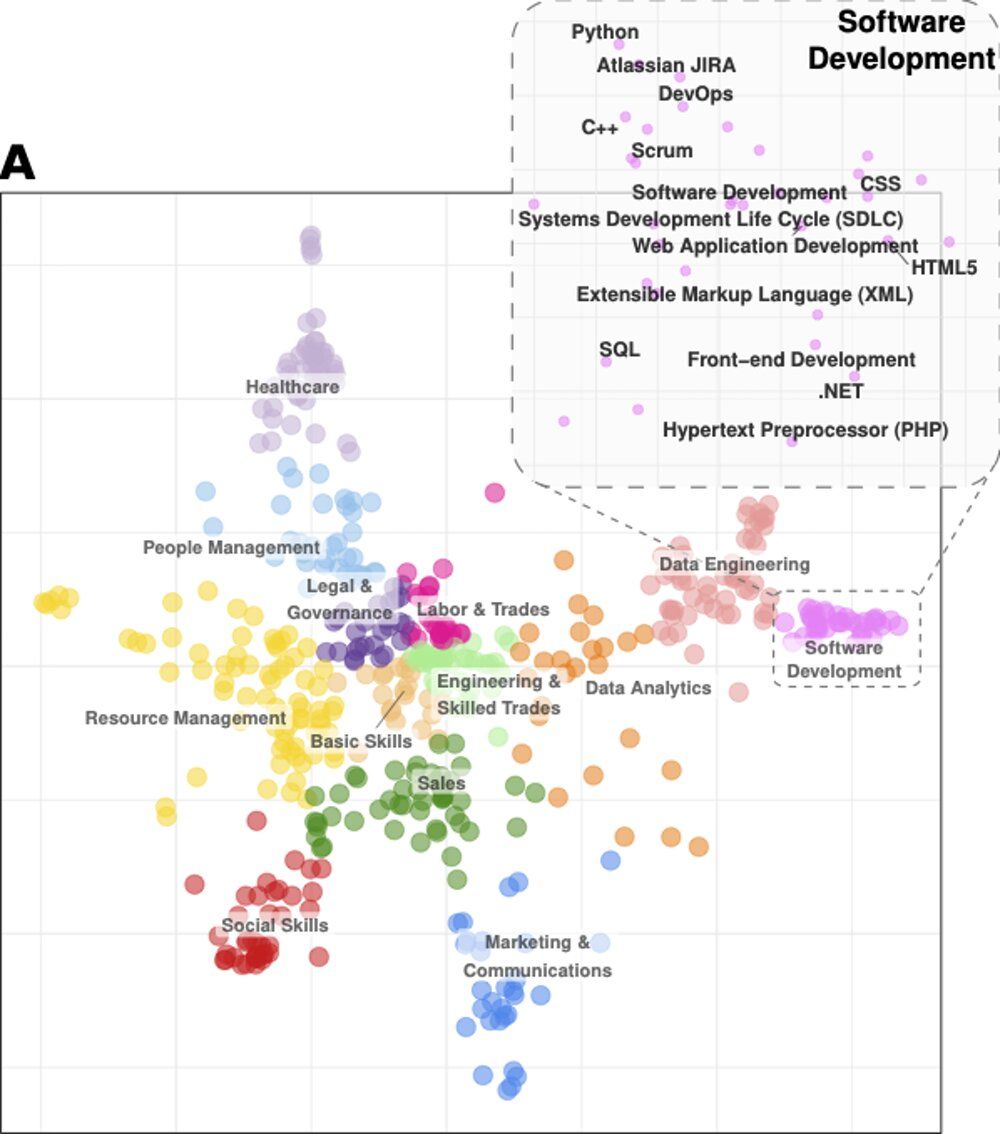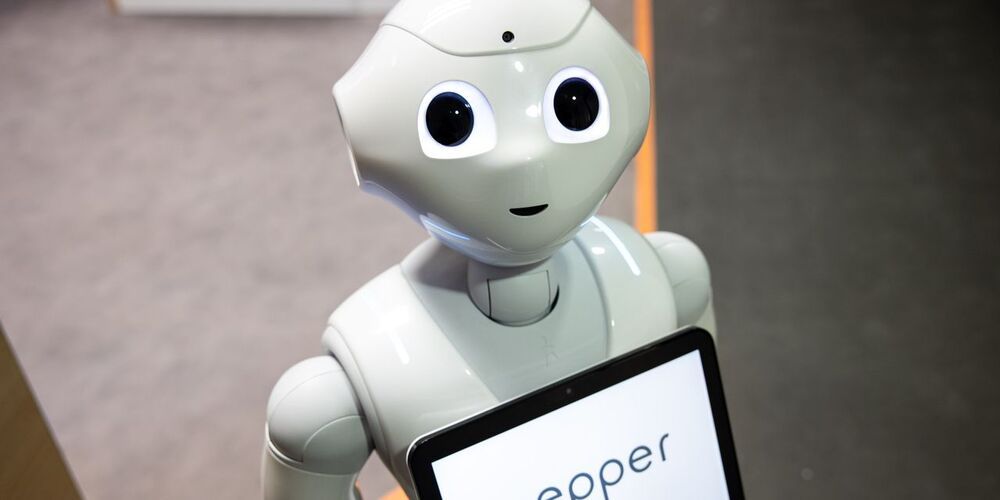Robots are taking over low-paid and increasingly risky jobs in recycling, keeping the industry churning.



The typical Australian will change careers five to seven times during their professional lifetime, by some estimates. And this is likely to increase as new technologies automate labor, production is moved abroad, and economic crises unfold.
Jobs disappearing is not a new phenomenon—have you seen an elevator operator recently? – but the pace of change is picking up, threatening to leave large numbers of workers unemployed and unemployable.
New technologies also create new jobs, but the skills they require do not always match the old jobs. Successfully moving between jobs requires making the most of your current skills and acquiring new ones, but these transitions can falter if the gap between old and new skills is too large.
Investing in the convergence of bioelectrics & biologics for regeneration & healing — howard J. leonhardt, founder, leonhardt ventures.
Howard Leonhardt is the Founder of Leonhardt Ventures, the world’s first Innovation Accelerator focused on the convergence of bioelectrics & biologics for organ regeneration and tissue healing.
Howard is an accomplished inventor and serial entrepreneur, with 21 U.S. patents, over 100 patent claims for products for treating cardiovascular disease, and has over 40 new patent claims pending. His TALENT (Taheri-Leonhardt) stent graft, developed in the early 1990′s, holds a leading world market share for repairing aortic aneurysms without surgery.
Howard’s inventions to date have been involved in treated over 500000 patients in 60 countries.
Howard is co-leader of Startup California and Founder and Chairman of The California Stock Exchange TM (Cal-X) preparing to be the first social good impact stock exchange currently operating the Cal-X 30 Social Good Impact fund. He founded Cal-X Crowdfund Connect, a crowdfunding campaign management company, and Cal-X Stars Business Accelerator, Inc., a business incubator and accelerator focused on cardiovascular life sciences and social good impact innovations.
From 3 day weekends to a future where all the jobs you do not want to do are automated, leaving you to spend your time as you desire.
Learning and research.
Sport and recreation.
Tourism and adventure.
Or whatever takes your fancy…
Well 4 day working weeks are already arriving, and I then show the rate of break throughs in Artificial Intelligence in just the last decade, which are removing the repetition and boredom from our jobs, so we can spend more time on the bits that matter and that are of interest.
What do you think?
Let us know your thoughts in the comments.
If you want to see more about the decade of disruption that is heading our way, then check out this next…
Iceland study.


Circa 2019
Imagine we go through the disruptive transition between an economy where we need to work to make a living, to one where we don’t. It is hard to imagine because in North America; we haven’t been in this situation since the colonial era. Back in the colonial era, most people were farmers and families had to build their own homes. Neighbors traded with each other and with the closest town with what they had to get what else they needed. Those were difficult days with minimal supply chains established in North America. It is not a period we want to go back to, but we may learn from our forebears to prepare us for what is to come.
It is no surprise, in this age where automation is threatening to replace all employees, that we have concerns about how we can still function as a society when automation will take over most jobs. Fortunately, the same systems that threaten our livelihoods can bring us to a Golden Age of civilization where people live free, happy lives, without the concern for survival. I talk about the future of work in an article I published earlier this year. In a nutshell, and for the purpose of this article, I’ll jump to the conclusion: there won’t be enough demand for humans to have jobs within the next 20 years to sustain an employment-taxation type of economy.
We need to transform our economy to one that fits our aspirations and available technologies.

Such changes, multiplied across thousands of businesses in dozens of industries, could significantly change workers’ prospects. Professor Warman, the Canadian economist, said technologies developed for one purpose tend to spread to similar tasks, which could make it hard for workers harmed by automation to shift to another occupation or industry.
The need for social distancing led restaurants and grocery stores to seek technological help. That may improve productivity, but could also cost jobs.

Fortunately, automakers, suppliers and government leaders are examining things like electric vehicles and where batteries and other parts come from as they push for North American production. The Department of Energy has released a National Blueprint for Lithium Batteries, and a plan to support the domestic battery production to meet growing needs as people go back to work and school in the fall.
It is tempting to see the chip storage problem as just a technology story. But it also has real-world implications for our national security as so much of defense relies on computers and communications in the era of modern warfare.
As Americans celebrate our independence, we have to re-commit to being independent when it comes to reliance on others for goods and services that fuel our lives. We can’t make everything at home, but we can make more and ensure that disruptions abroad don’t reverberate, negatively, at home. As Congress continues to debate infrastructure and other major legislation, and the COVID-19 pandemic retreats, we will need to work together to ensure that we are prepared for whatever 2022 might bring.
Ut ohh.
The middle and working classes have seen a steady decline in their fortunes. Sending jobs to foreign countries, the hollowing out of the manufacturing sector, pivoting toward a service economy and the weakening of unions have been blamed for the challenges faced by a majority of Americans.
There’s an interesting, compelling and alternative explanation. According to a new academic research study, automation technology has been the primary driver in U.S. income inequality over the past 40 years. The report, published by the National Bureau of Economic Research, claims that 50% to 70% of changes in U.S. wages, since 1980, can be attributed to wage declines among blue-collar workers who were replaced or degraded by automation.
Artificial intelligence, robotics and new sophisticated technologies have caused a wide chasm in wealth and income inequality. It looks like this issue will accelerate. For now, college-educated, white-collar professionals have largely been spared the fate of degreeless workers. People with a postgraduate degree saw their salaries rise, while “low-education workers declined significantly.” According to the study, “The real earnings of men without a high-school degree are now 15% lower than they were in 1980.”

Third-party cookie trackers live to fight for another year.
Google is announcing today that it is delaying its plans to phase out third-party cookies in the Chrome browser until 2023, a year or so later than originally planned. Other browsers like Safari and Firefox have already implemented some blocking against third-party tracking cookies, but Chrome is the most-used desktop browser, and so its shift will be more consequential for the ad industry. That’s why the term “cookiepocalypse” has taken hold.
In the blog post announcing the delay, Google says that decision to phase out cookies over a “three month period” in mid-2023 is “subject to our engagement with the United Kingdom’s Competition and Markets Authority (CMA).” In other words, it is pinning part of the delay on its need to work more closely with regulators to come up with new technologies to replace third-party cookies for use in advertising.
Few will shed tears for Google, but it has found itself in a very difficult place as the sole company that dominates multiple industries: search, ads, and browsers. The more Google cuts off third-party tracking, the more it harms other advertising companies and potentially increases its own dominance in the ad space. The less Google cuts off tracking, the more likely it is to come under fire for not protecting user privacy. And no matter what it does, it will come under heavy fire from regulators, privacy advocates, advertisers, publishers, and anybody else with any kind of stake in the web.